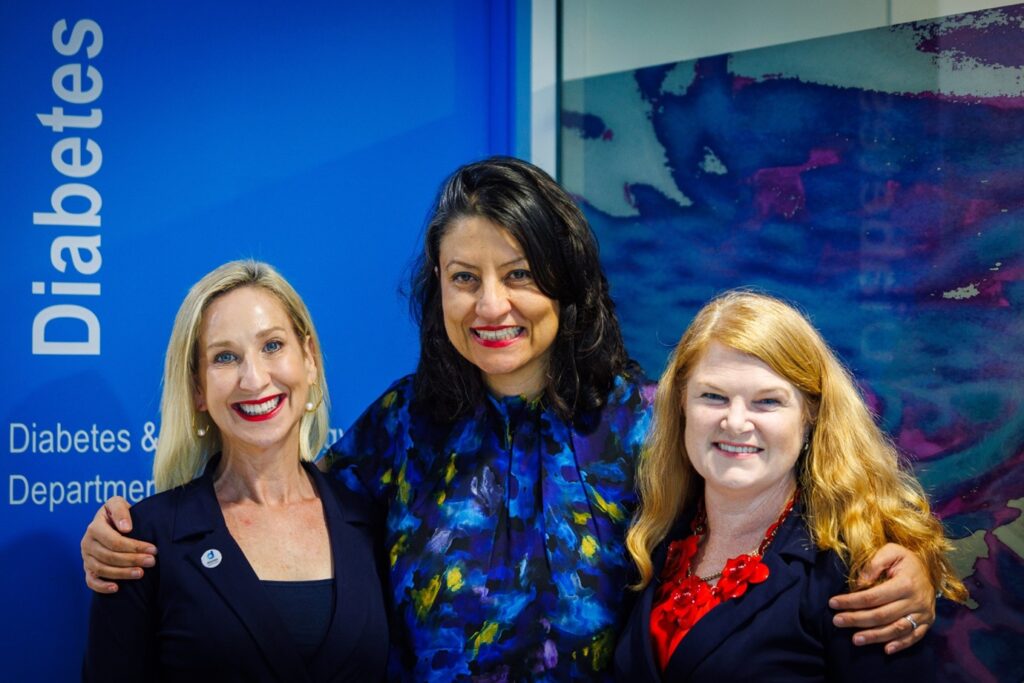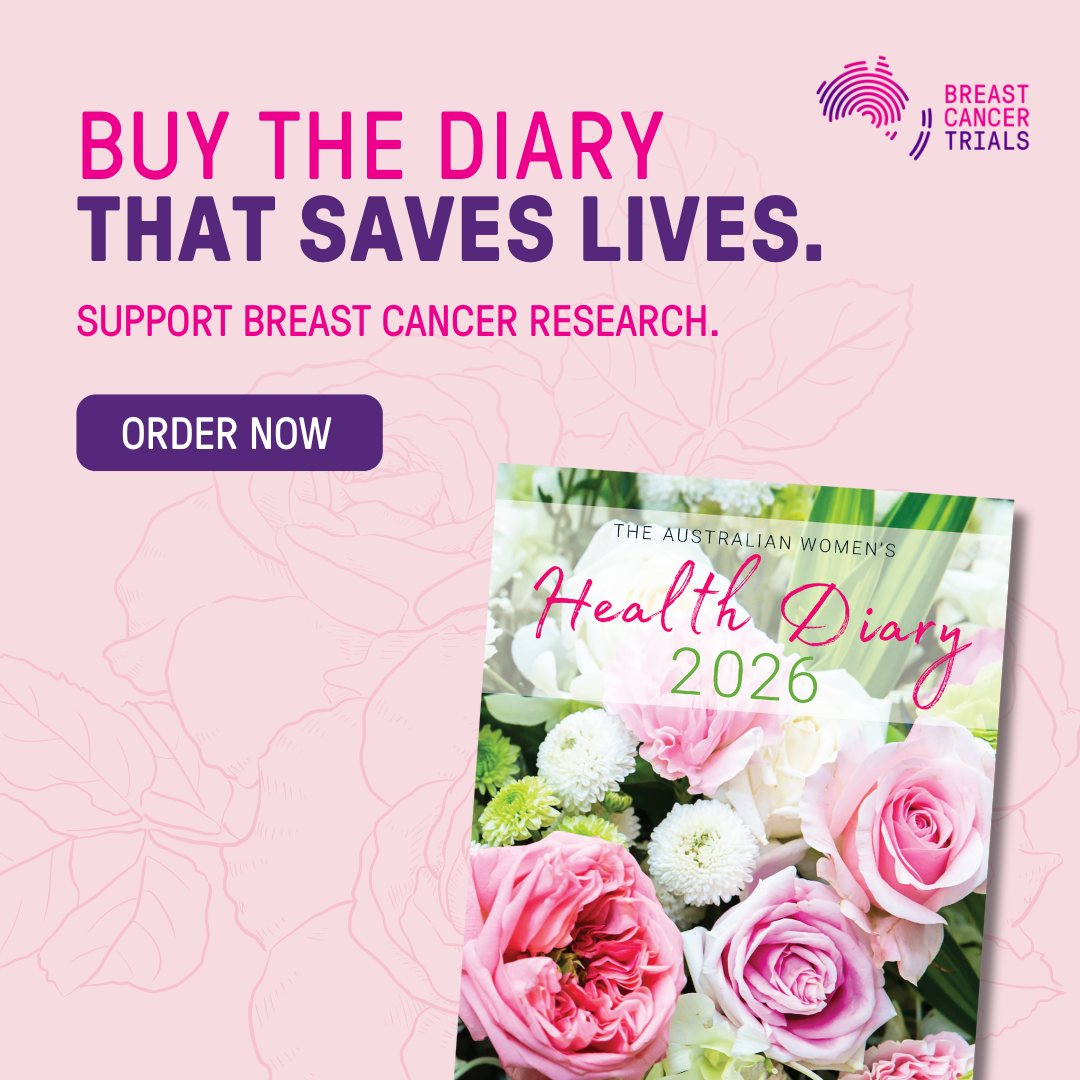For the first time, five women are at the forefront of the fight against diabetes, a condition affecting more than two million Australians.
From transforming national healthcare strategies to advancing groundbreaking research, Justine Cain, Professor Elif Ekinci, Professor Josephine Forbes, Ann Bush, and Sydney Yovic are working to leave the Australian healthcare system in a better state for future generations.
On World Diabetes today (14 November), these five leaders speak to Women’s Agenda about their work driving change in diabetes care and research.

Justine Cain, CEO of Diabetes Australia
The first female CEO of Diabetes Australia, Justine Cain has more than two decades of senior executive experience across health and human services.
Cain says her leadership with Diabetes Australia is “focussed on providing advocacy and support to all Australians living with diabetes, across every state and territory of Australia.”
“Whether you are in remote, rural, regional or metro settings – Diabetes Australia will be accessible and there for you.”
Cain says as well that increasing funding for diabetes research is a key priority as “living with diabetes is challenging, costly and has significant physical impacts and mental health impacts”.
When it comes to leadership with the healthcare sector, Cain says one of the biggest systemic barriers that women face is “advancement”.
“Women often have to navigate gender biases and a lack of representation in senior roles. However, I firmly believe that these barriers are being broken down by the remarkable contributions women are making, not only in diabetes care and research but across the healthcare sector.”
“We are worthy, capable, effective, caring, efficient and deeply focussed on supporting our community and our teams.”
Professor Josephine Forbes, president of the Australian Diabetes Society
Professor Josephine Forbes is the fourth female President in 50 years of the Australian Diabetes Society supporting diabetes healthcare professionals. She is a leading researcher at the Mater Research Institute at the University of Queensland and part of the leadership group of ACADI.
For the millions of Australians living with diabetes, Professor Forbes says it’s “an exciting period of change for diabetes technology and medications delivered through international research efforts and collaboration with stakeholders”.
“We need to continue to have an integrated approach that delivers equitable and affordable evidence-based care, up-to-date training and support for people using and delivering it, and ongoing research to improve current but also facilitate new discoveries to make care even better.”
For the next generation of women looking to make impacts in the sector, she says to “keep your eye firmly on the goal of improving people’s lives”.
“Delivering better care needs everyone working and advocating together.”
Ann Bush, President of the Australian Diabetes Educators Association
Ann Bush is the President-elect of the Australian Diabetes Educators Association (ADEA). She’s also a registered nurse and credentialled diabetes educator (CDE) and has specialised in diabetes since 1991.

“Part of ADEAs strategy is to increase awareness of and access to Credentialled Diabetes Educators (CDE),” says Bush.
“Currently, just 30 per cent of people living with diabetes access a CDE. It’s very hard for people to manage their diabetes if they do not understand the condition. CDEs are experts in all things diabetes and our job is to partner with the person living with diabetes so they can get the best health outcomes while still enjoying life.”
Bush says it’s “naive to believe the hospital system can cope with all of the people living with diabetes”, which is why improving funding to access CDEs based in the community is so critical to improving health outcomes.
“I never envisioned being in my current leadership position,” says Bush. “My best advice is to do what I did: Network, get involved, and continually broaden your knowledge. Always act with integrity and take time to mentor and encourage the next generation.”
Sydney Yovic, CEO of JDRF Australia
Sydney Yovic is the CEO of JDRF Australia, the leading supporter of type 1 diabetes research globally.

“At JDRF, we represent the type 1 diabetes (T1D) community. For them, the most critical change for improved care are cures. Yet myriad improvements must and can be made across management technology, early detection, therapies that can slow or delay the development of the condition, advancements to insulin themselves, and more – until the ultimate goal of cures is reached,” says Yovic, adding that JDRF invests “in cutting edge research so that as we drive toward curing type 1 diabetes, we help make everyday life better for the people who face it.”
For the next generation of women looking to make big impacts in health and medicine, Yovic says: “Be constantly curious, find mentors and believe in yourself”.
Professor Elif Ekinci
Professor Elif Ekinci is a renowned clinician and researcher dedicated to advancing diabetes treatment through research and education.
As the inaugural Director of the Australian Centre for Accelerating Diabetes Innovations (ACADI) and also Head of the Department of Medicine at the University of Melbourne, Professor Ekinci’s work focuses on improving the management of diabetes and its complications.
“I see access to new lifesaving therapies and technologies, and health equity are the most critical changes needed for improved care,” says Professor Ekinci.
“This is where research can come into play – contributing to both in terms of discovery of new therapies and technologies, as well as contributing to models of care to improve access.”
Professor Ekinci’s leadership has been instrumental in translating research into clinical practice. For the next generation of women who look to make big impacts as well, she says her key advice is to “stay focussed on your vision” and “keep agile”, as well as “look after yourself both mentally and physically”.


